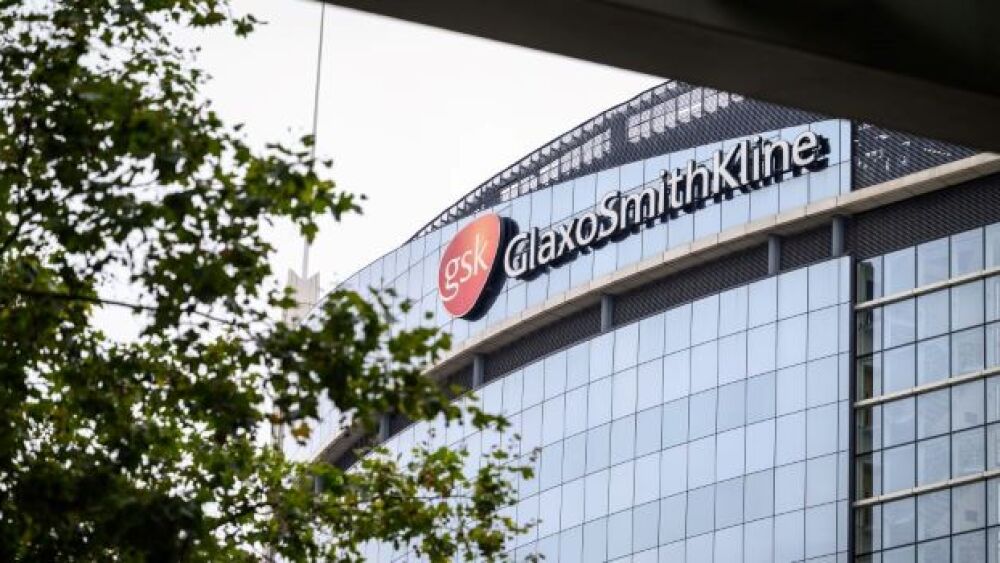The company is conducting analyses to understand safety data that had been gathered prior to the pausing of the three studies, NCT04605159, NCT04980391 and NCT05229068.
Leon Neal/Getty Images
Weeks after GlaxoSmithKline announced a pause to three clinical trials assessing its respiratory syncytial virus (RSV) vaccine candidate in pregnant women, the company has opted to stop enrollment and vaccination in those trials.
In its announcement Monday morning, GSK provided little detail regarding its decision. The company said it is conducting analyses to understand safety data that had been gathered prior to the pausing of the three studies, NCT04605159 (also known as the GRACE study), NCT04980391 and NCT05229068.
GSK paused the three trials earlier this month following a recommendation from the Independent Data Monitoring Committee. That recommendation was based on observation during a routine safety assessment. The company did not specify what safety concerns the committee had seen.
The GSK maternal RSV vaccine candidate, GSK3888550A contains a recombinant subunit pre-fusion RSV antigen (RSVPreF3). Phase I/II data showed promising safety and immunogenicity. The goal of dosing pregnant women is to transfer maternal antibodies into an infant following birth to provide protection against RSV. Infants are most vulnerable to RSV in their first few months when they are too young to be immunized. Maternal immunization is thought to be able to provide protection.
Respiratory syncytial virus is a leading cause of bronchitis and pneumonia and one of the most common infections in the world. It is viewed as a significant public health threat. It is of particular concern for infants and older adults. According to the U.S. Centers for Disease Control and Prevention, RSV leads to 177,000 hospitalizations and about 14,000 deaths in adults over the age of 65 each year. Globally, the infection rate is much higher. According to the World Health Organization, there are about 64 million infections each year, with approximately 166,000 resulting deaths.
The pause of these three trials does not impact the ongoing Phase III AReSVi 006 of the RSV vaccine in adults ages 60 and above. GSK said that the trial remains on track with an anticipated data readout in the first half of 2022.
Multiple companies are racing to develop RSV vaccines due to the significant market demand. By 2027, the market for RSV is expected to be more than $4 billion. GSK, Pfizer, Johnson & Johnson, AstraZeneca, Moderna, and Novavax are all assessing potential RSV vaccines.
Earlier this month, AstraZeneca and Sanofi won accelerated approval from the European Medicines Agency for their RSV antibody nirsevimab, which was greenlit for the prevention of medically attended lower respiratory tract infections (LRTI) in all infants through their first RSV season. As BioSpace previously reported, nirsevimab is the first long-acting antibody that has been designed to provide RSV protection for all infants. According to the companies, the AstraZeneca/ Sanofi drug is designed to be administered from birth to infants born during the RSV season or at the season’s start for infants entering their first RSV season. The accelerated authorization was based on Phase II/III data from the MEDLEY trial and the Phase III MELODY trial. These studies showed nirsevimab has the potential to protect all infants entering their first RSV season with a single dose.





